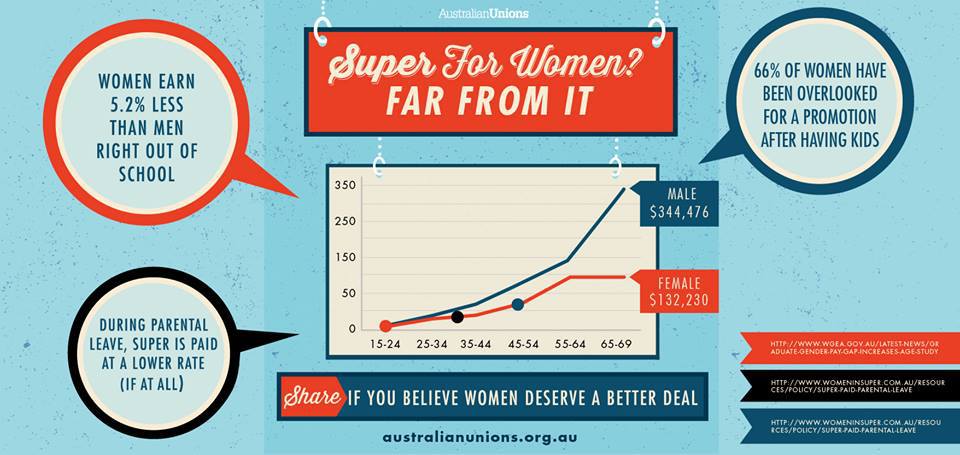Men out-earn women in every occupational group in Australia – even in those jobs dominated by women, ABS data analysed by the ACTU shows.

ACTU President Ged Kearney has called for a renewed push to tackle the 'quicksand effect' where women fall further and further behind on pay and work opportunities for a cluster of reasons including caring responsibilities, lack of skills training, access to overtime and pay bonuses and straight-out discrimination
Ms Kearney said discrimination was much more wide-spread than most people realised, "In Australia there is a situation where a large percentage of the workforce might as well be standing in quicksand."
"Women are paid less than men across every occupational group. That means from managers to technicians to sales and clerical, there is no workforce group where the median income for women is greater than for their male counterparts. These groups are across all industries and sectors and therefore paint a true and disturbing portrait of how women struggle to get ahead."
"Employers can no longer hide behind the excuse that women are working different jobs or jobs at different skills levels to men and that accounts for the pay differential. This data shows even in the same occupation group, with the same skill level women still go home with less."
"Unions have been worried for a long time about the two-prong effect of the 'glass ceiling' at the top where women are still vastly outnumbered in managerial and executive position by men, while also struggling with discrimination, underpayment and outmoded workplace cultures," she said.
Ms Kearney said, even in the most female dominated occupation women have a lower median income of $999 per weeks compared to $1150 for men. "In male dominated jobs women have it much worse with similar skill level earning $850 compared to $1133 for men. That's a 33 per cent premium just for being male."
"But when you reverse the situation men are more likely to get promoted and will often earn more money. For example 17 per cent of primary school teachers are men but yet they make up a mighty 49 per cent of principals. That means women are under-promoted by 32 per cent.
"It's a similar story across many industries and occupations so we need to look very closely at the reasons behind this. Our gendered work culture in Australia is persistently discriminatory and employers must analyse their practices.
Ms Kearney said, "Businesses must re-examine their practices and honestly assess the opportunities they do or do not provide to women especially around creating work arrangement that don't penalised them for their caring responsibilities."
"The gender pay gap is self-perpetuating, with women more likely to put their careers on the back burner because they earn less than their partners.
"We need to work together to break down gender barriers at work - so that men and women have opportunities to care for their loved ones and participate in satisfying and properly-valued paid work."
Media contact: Eleni Hale 0418 793 885 and Ben Ruse 0409 510 879

